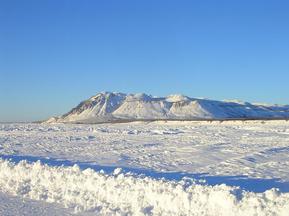Tulít'a, Northwest Territories

Year(s) Funded: 2014-2015
Topic Area: Adaptation Planning Contact: Ɂehdzo Got’ı̨nę Gots’ę́ Nákedı, Sahtú Renewable Resources Board Partners: The Pembina Institute, The five Ɂehdzo Got’ı̨nę of the Sahtú Region: Colville Lake Ɂehdzo Got’ı̨nę, Délı̨nę Ɂehdzo Got’ı̨nę, Fort Good Hope Ɂehdzo Got’ı̨nę, Norman Wells Ɂehdzo Got’ı̨nę, and Tulı́t’a Ɂehdzo Got’ı̨nę Website: http://www.srrb.nt.ca Title: Overcoming Fear: Sahtú Youth Network Initiative on Health and Climate Change
Action: Expanding on previous Health Canada-funded, youth-led projects in Tulı́t'a, Délı̨nę and Fort Good Hope, this project adopted a fully regional lens for the first time. Several workshops were held over the course of the project, including the Sahtú Research Results workshop: Sahtú Youth Network participants made a collective presentation to scientists and researchers from various government agencies and universities, government program managers, traditional knowledge specialists, representatives from the Sahtú Environmental Research and Monitoring Forum, representatives from each of the Sahtú communities (Ɂehdzo Got'ı̨nę and Land Corporations), as well as various local onlookers. A vulnerability assessment was conducted for the Sahtú Region, and addresses broader socio-cultural shifts linked to climate change such a growing need for language revitalization and higher education in scientific fields. At the urging of the SYN members themselves, investigation methods were centred around experiential learning on the land. Results: The project involved the formation of a regional Sahtú Youth Network (SYN) whose members led the investigation and conducted interviews with Sahtú Elders and harvesters. Over the course of this project, with input and guidance from Elder advisors and the Project Team, SYN participants identified “environmental determinants of health” related to climate change in the Sahtú, mapped the connections between climate change and environmental and human health effects, and identified priority actions that youth can work on or advocate for. Outputs: The Sahtú Youth Network was created as a result of this project. |
